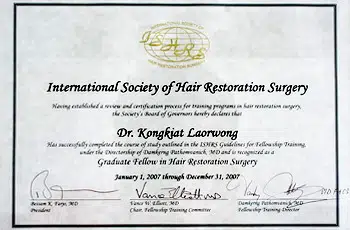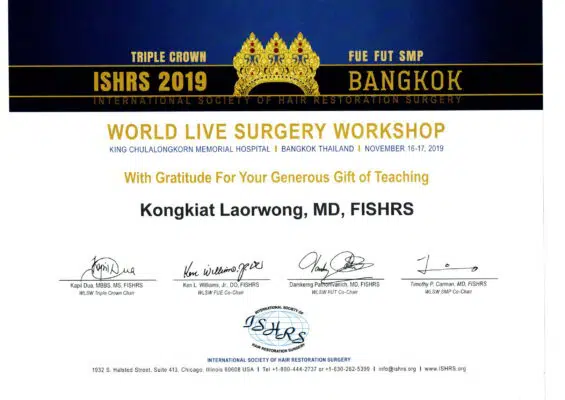
Kongkiat Laorwong, MD, FISHRS
. Dr. Kongkiat Laorwong is a Diplomate American Board of Hair Restoration Surgery which has certified since 2010 and now a Fellow ISHRS in 2014.
Dr.Kongkiat Laorwong, MD, FISHRS is highly recommended on hairrestorationnetwork and Reddit
Please contact him at this email:
Find more real reviews on Reddit and hairrestorationnetwork.com
Doctor’s hour:
Monday – Sunday 09.00 AM – 6.00 PM












